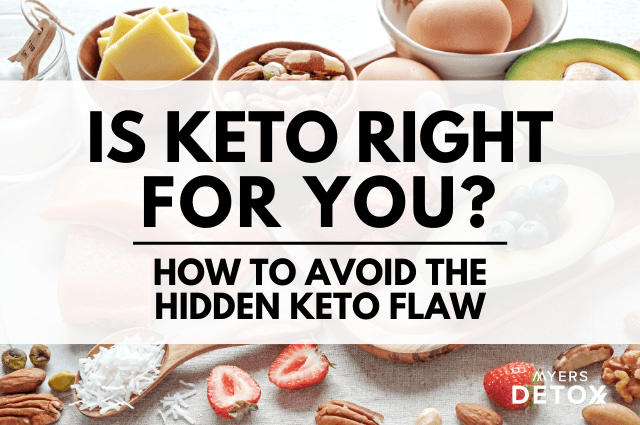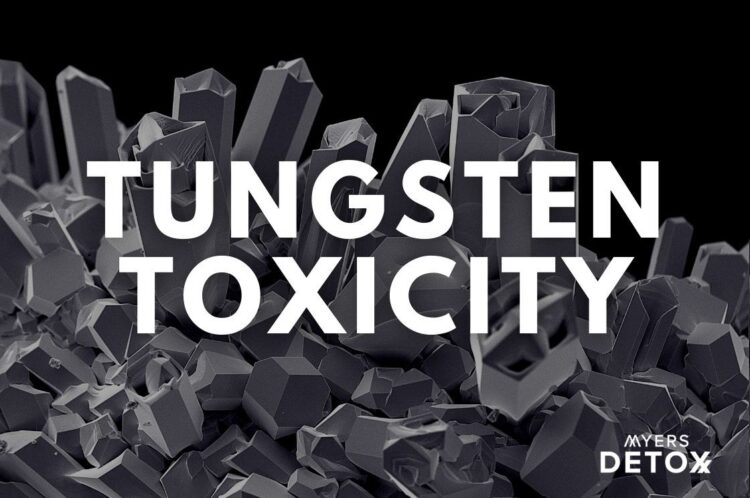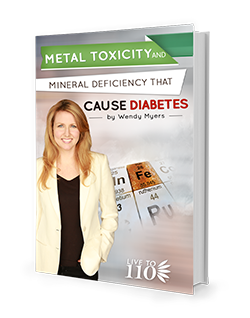Is Keto Right for You? How to Avoid the Hidden Keto Flaw

The keto diet has become an incredibly popular way to lose fat and boost energy, but it doesn’t work the same for everyone. As you might have found out if you’ve tried it and felt terrible.
For those following a keto diet, there is an all too common crash that comes with reduced energy and the onset of fatigue. Does this mean you should avoid the keto diet altogether? Not necessarily.
In this article, you’ll learn:
- What the keto diet is
- The hidden flaw of the keto diet
- How this flaw holds you back from reaping benefits like weight loss and improved energy
- How keto may disrupt your hormones
- Why you can’t lose that stubborn fat
- How to optimize your body before starting a keto to get results
What Is The Keto Diet?
The ketogenic diet is a high-fat, low-carbohydrate diet that consists of around 20-25% protein, 5% carbohydrates, with the remainder of your calories coming from fat. This carb restriction puts your body into a state known as ketosis, which is a metabolic shift where your body runs primarily on energy molecules called ketones instead of glucose from carbohydrates.
Ketones are created from the breakdown of fatty acids, which is a much more abundant source of energy than glucose. This shifts you from burning carbs for energy to burning FAT.
Some of the benefits associated with following a ketogenic diet include reduced inflammation, weight loss, suppression of hunger hormones, increased energy, and improved cognitive health[1][2][3]. Many swear by it for dementia and cancer – to starve cancer cells that thrive on glucose (sugar).
With all these benefits, it’s no surprise that this diet has become one of the most popular trends in health and wellness in the past few years.
The Hidden Keto Flaw
While many people feel fantastic following the keto diet, there are others that struggle with this way of eating, and no matter how hard they try, they can’t seem to pull it off or don’t feel well or don’t lose weight. Why is that?
During the first couple of weeks on the diet most people experience common symptoms like brain fog, nausea, trouble sleeping, muscle aches, and irritability. This is part of the process of transition into burning ketones for fuel. It’s referred to as the “keto flu.” I learned this the hard way!
For some people, however, these symptoms don’t subside, and even bigger issues like hormone imbalance and fatigue can set in. This is due to the one fundamental flaw of the keto diet — the pressure it puts on your liver.
The ketogenic diet, as mentioned before, is very high in fat. Consuming large amounts of fat puts an incredible burden on your liver and forces it to work on overdrive. The problem is, in the U.S., almost one in three people have toxic, fatty livers which compromise their ability to break down fat. One in three Americans equates to about 100 million people — that’s a huge sector of our population[4].
Even more important to understand is that 25% of the population in the US has diabetes, high blood pressure and high cholesterol – also referred to as metabolic syndrome. With this syndrome also comes a condition called fatty liver. And they are the very population that is trying to lose weight and may be trying a keto diet.
It’s no wonder then, that so many people who try the keto diet fail and feel miserable. I can’t even tell you how many clients I’ve had that have followed this diet to a T and still couldn’t reap the benefits because their liver health was suboptimal.
What causes a fatty liver? This happens when your liver doesn’t metabolize fat efficiently. Toxic overload in your environment from chemicals and heavy metals, and the standard American diet with high levels of processed foods and refined carbohydrates.
For this reason, when any of my clients want to try the keto diet, the first thing I have them do is a thorough liver cleanse. Plain and simple — if you don’t optimize your liver function, you won’t see the benefits of the keto diet.
Why Can’t I Lose this Last 15 pounds?
Some people find that they can’t lose weight on keto no matter how restrictive they are. One common reason for this is that your body stores toxins in your fat cells. Fat cells are actually a relatively safe place for toxins to live because they sequester them away from more metabolically active tissue.
This becomes a problem, however, when your liver isn’t properly pulling toxins out of your body. When this happens, you won’t be able to lose fat because the fat cells you’re trying to get rid of are doing an incredibly important job, holding toxins so they don’t infiltrate your body.
This is a survival mechanism that can only be broken by stopping the influx of toxins and cleansing your body and liver.
In addition, you need a healthy liver to remove excess hormones from circulation. When hormones aren’t efficiently broken down and eliminated, it can result in disorders like estrogen dominance, which causes weight gain particularly in midsection, hips and thighs[8][12].
For women, this can become a massive issue because the proper balance of estrogen is crucial for monthly cycles and healthy transitions into menopause.
Again, this is where a good liver cleanse can make the difference between shedding those last few pounds or not.
Solutions for Keto Dieting
I don’t want to turn you off from the keto diet completely. In fact, there are many people who follow this diet with great success. However, I would like to provide some solid guidelines if you’re trying this diet for the first time or giving it another go after a failed attempt.
#1 Optimize Liver Function
By far, the most crucial step you can take prior to beginning a keto diet is to optimize your liver function. As mentioned earlier, without optimal liver function, you simply won’t be able to reap the benefits of ketosis.
Your liver plays a vital role in the breakdown and processing of fat in your body. If it’s sluggish or overloaded with toxins, a diet like keto which derives 70-80% of its calories from fat could seriously backfire.
Additionally, a toxic liver could make issues like hormone imbalance worse by inhibiting the elimination of excess sex hormones. This can set you up for conditions like estrogen dominance, or worsening the symptoms of menopause.
To optimize the function of your liver, I recommend beginning with a two-week liver rehab before beginning a keto diet. This will set you up for success and give you a jump-start on feeling your best.
#2 Improve Bile Flow
Bile is a substance released from your liver that plays an essential role in the breakdown of fat. It’s made up of cholesterol, water, bile acids, bilirubin, and salts. Many people don’t make enough bile or it’s not thin enough.
On the keto diet, you’re going to be asking a lot of your bile, so making sure that it’s flowing properly is vital[11]. Improving your flow of bile is something that goes hand in hand with improving the function of your liver. Therefore, you can look at it as part of your liver optimization process.
Bile responds very positively to bitter herbs and substances, which is why many people take bitters as a way to help break down fat if they’re experiencing issues. Other bitter substances include lemons, artichokes, sunchokes, dandelion, and burdock.
I’ve included some of these bitter herbs in my Daily Detox blend to enhance bile flow while also improving liver detoxification.
#3 Carb Cycling
Severely restricting carbs long term can have detrimental effects on your hormonal systems. It can decrease the production of thyroid hormone, mess with the normal function of your HPA axis, and ultimately leave you in a state of hormonal imbalance.
Luckily, there is more than one way to follow a keto diet. While most people recommend sticking to low-carb for extended periods of time, they’re likely unaware of how harmful this can be for a woman’s body. That’s why I recommend following a carb cycling protocol instead of going all-in with carb restriction.
There are a couple of different ways that you can go about carb cycling:
Two Weeks Low-Carb, Two Weeks Moderate Carb
This is especially helpful if you’re still having a menstrual period or are currently going through menopause. Due to the importance of carbohydrates for proper hormone production, it’s crucial that you get the right nutrients during your cycle so that your body can produce the hormones it needs at the right time.
During the first two weeks of your cycle, you can follow a standard ketogenic diet. Once ovulation hits, however, you will switch to a slightly higher carb diet to provide your body with the nutrients it needs during this vital period of hormone production.
Cyclical Keto Diet
The cyclical keto diet is a common version of the keto diet that allows for one to two days of high-carb intake per week.
The higher carb days are meant to replete your glycogen stores, and the lower carb days offer you a chance to once again deplete them. Many people enjoy carb cycling because it can help with energy (especially for athletes), and decreases some keto-related side effects like fatigue, nausea, headache, and insomnia.
For women, this offers your body a chance to utilize carbs to maintain a healthy HPA axis, thyroid function, and sex hormone balance.
Rehab Your Liver Before Starting Keto
The ketogenic diet has many potential benefits to offer, but it’s crucial that you set yourself up for success before you begin.
Getting your liver working optimally is absolutely vital if you want to reap the benefits of keto. For this, I recommend a 14-Day Liver Rehab to optimize liver health and get your body ready to start breaking down fat.
Improving your liver’s function will help you:
- Break down dietary fat
- Improve the flow of bile
- Release toxins stuck in your fat cells (and ultimately help you release stubborn fat)
- Keep your sex hormones in balance
If you’re wondering whether or not your liver actually needs this reboot, I am here to tell you that, unfortunately, it likely does. In fact, I’ve found that 90% of the clients I see are in dire need of a liver overhaul, which is why I created this 14-Day Liver Rehab.
This program includes:
- Three prerecorded webinars to help you understand liver function and how liver detox works
- Liver cleansing “how-to” videos
- Liver rescue e-library (with tons of resources)
- 14-day liver cleanse rehab program guide including step-by-step instructions on what to eat, what to avoid, and much more
- Advanced liver care protocols like castor oil packs
To support you on your liver cleansing journey, I also recommend taking Daily Detox, a liver cleansing supplement that includes ingredients handpicked by me to support liver detox and bile flow.
Takeaway
The ketogenic diet has become an incredibly popular way to lose weight, reduce inflammation, and improve cognitive health. For many, however, these benefits remain elusive due to low liver function leading to suboptimal fat breakdown and utilization. This is such a common pitfall for women.
There is no diet out there that’s a one-size-fits-all, so the keto diet may simply not be the answer for you. But if you’re struggling to see benefits on the keto diet, it’s more likely that you need to reboot your liver and try again.
Once your liver is functioning optimally, you’ll be able to break down fat, detox hormones and other toxins stored in your fat cells, and enhance the flow of bile stored in your gallbladder.
You can also take a modified approach by trying carb-cycling, instead of sticking to severe carb restriction long-term.
Click Here for References+
- Pinto, Alessandro, et al. “Anti-oxidant and anti-inflammatory activity of ketogenic diet: new perspectives for neuroprotection in Alzheimer’s disease.” Antioxidants 7.5 (2018): 63.
- Ting, Rhonda, et al. “Ketogenic diet for weight loss.” Canadian Family Physician 64.12 (2018): 906.
- Hernandez, Abbi R., et al. “A ketogenic diet improves cognition and has biochemical effects in prefrontal cortex that are dissociable from hippocampus.” Frontiers in aging neuroscience 10 (2018): 391.
- https://liverfoundation.org/liver-disease-statistics/#non-alcoholic-fatty-liver-disease-non-alcoholic-steato-hepatitis
- Ullrich, Irma H., Philip J. Peters, and M. J. Albrink. “Effect of low-carbohydrate diets high in either fat or protein on thyroid function, plasma insulin, glucose, and triglycerides in healthy young adults.” Journal of the American College of Nutrition 4.4 (1985): 451-459.
- Mathieson, Ruth A., et al. “The effect of varying carbohydrate content of a very-low-caloric diet on resting metabolic rate and thyroid hormones.” Metabolism 35.5 (1986): 394-398.
- Ryan, Karen K., et al. “Dietary manipulations that induce ketosis activate the HPA axis in male rats and mice: a potential role for fibroblast growth factor-21.” Endocrinology 159.1 (2018): 400-413.
- https://www.sciencedirect.com/topics/medicine-and-dentistry/estrogen-metabolism
- Sigler, M. H. “The mechanism of the natriuresis of fasting.” The Journal of clinical investigation 55.2 (1975): 377-387.
- https://www.cedars-sinai.org/blog/electrolytes.html
- https://medlineplus.gov/ency/article/002237.htm
- https://journals.physiology.org/doi/full/10.1152/ajpendo.00023.2013









